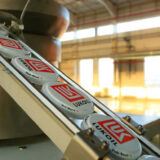
GP Petroleums to invest in second lube blending plant in India
GP Petroleums Ltd (GPPL) announced plans to invest INR100 crore (USD14 million) in a new plant at Saronda in Gujarat, India, to process more than 300,000 kilolitres of lubricants.
The plant will be GPPL’s second lube blending plant in the country and will manufacture specialty products, in addition to automotive and industrial lubricants. In addition to producing Ipol-branded lubricants, the plant may blend Repsol-branded automotive products as well.
GPPL is a leading automotive and industrial lubricants player in India and part of UAE-based multi-billion global oil conglomerate GP Global Group.
“We are very bullish about the growth of the Indian lubricant industry and aim to be one of its fastest-growing players,” said Chief Executive Officer Prashanth Achar.
“The new facility will accelerate our growth engine, which will be led by the automotive segment in tier two and three towns and cities. We already have a robust partnership with over 500 distributors across India which will be strengthened further in the next few years,” Achar said.
He added that this investment is part of the company’s new global strategy for its lubricants business.
“We are looking at an aggressive target of 500 million litres in five years globally with market entries in Africa, some of the Middle East countries and South Asia. This plant should cater to India specifically and also the South Asian market. For the India strategy that we have drafted, we are talking about doubling the profit in four years and doubling in volumes in five years,” Achar said.
“India is a very important market for GP Global and we are confident of securing a higher market share in both automotive and industrial segments in the coming years,” said Sudip Shyam, global head for lubricants and base oils at GP Global Group.
GPPL currently operates a plant in Vasai, near Mumbai, with an annual capacity of 80,000 tonnes.








